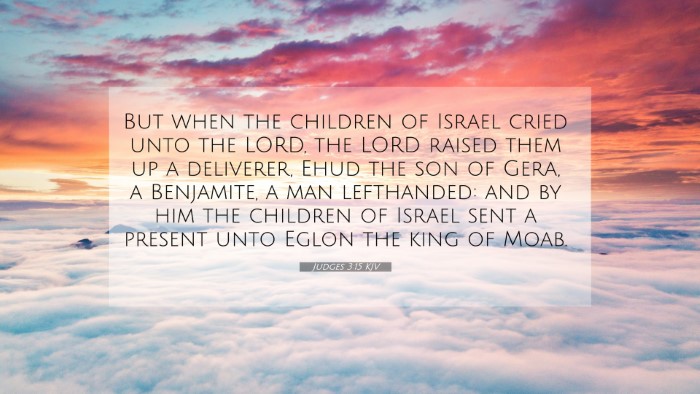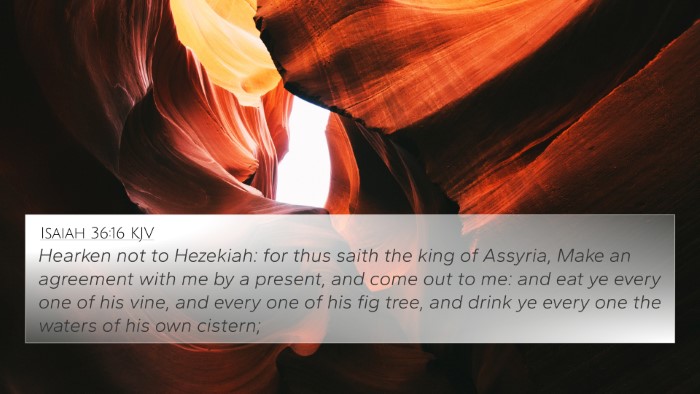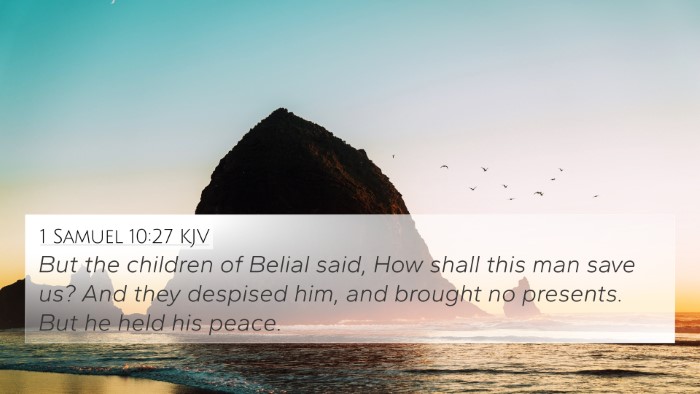Meaning of Judges 3:15
Judges 3:15 states: "But when the children of Israel cried unto the LORD, the LORD raised them up a deliverer, Ehud the son of Gera, a Benjamite, a man lefthanded: and by him the children of Israel sent a present unto Eglon the king of Moab.". This verse highlights a pivotal moment in Israel's history when God responded to the cries of His people by raising a deliverer to save them from oppression.
Insights from Public Domain Commentaries
-
Matthew Henry’s Commentary:
Henry emphasizes the nature of God’s deliverance, illustrating how divine intervention often requires the participation of His people. Their cries for help reflect an acknowledgment of their helplessness, which is necessary for deliverance to occur. The mention of Ehud's left-handedness is particularly significant, suggesting that God can use seemingly unconventional means to achieve His purpose.
-
Albert Barnes’ Notes:
Barnes points out that the raising up of Ehud as a deliverer symbolizes God's care for His people. The “present” sent to Eglon represents an act of political maneuvering. Though it appears that Israel is still being subjugated, the act of sending a present is also a strategic move leading to liberation. Barnes connects this act of sending a gift to the idea of seeking favor, showing the complexities of their relationship with Moab's king.
-
Adam Clarke’s Commentary:
Clarke elaborates on Ehud's characteristics, emphasizing the implications of his being left-handed. He interprets this as a metaphor for how God often acts through those who are unexpected or marginalized. Clarke also points out the historical context, noting Israel's cycles of sin and redemption, which clarifies how this period of distress is a result of their disobedience to God.
Bible Verse Cross-References
- Judges 2:16-18 - This passage discusses the cycle of Israel forsaking God and subsequently being raised up by judges when they return to Him.
- 1 Samuel 7:8 - Displays a similar cry for help from Israel and God's deliverance through Samuel.
- Psalm 34:17 - Highlights how God hears the cries of the righteous and delivers them out of trouble.
- Isaiah 41:10 - God's assurance of support and deliverance for His chosen people.
- Romans 10:13 - "For whosoever shall call upon the name of the Lord shall be saved," reflecting the importance of seeking God in times of distress.
- Hebrews 11:32-34 - Refers back to judges like Ehud, noting their acts of faith and deliverance.
- Acts 7:44-46 - Speaks of the tabernacle of witness in the wilderness, connecting back to Israel’s history of seeking God’s guidance.
Connections Between Bible Verses
Judges 3:15 serves as a vital connection point in understanding God's continuous theme of deliverance throughout both the Old and New Testaments. The cry of the Israelites mirrors the challenges believers face today and highlights the necessity of seeking God during hardship. Furthermore, the use of Ehud illustrates that God often chooses unlikely instruments for His greater work, as seen in other accounts in biblical history.
Thematic Bible Verse Connections
This verse initiates discussions about the themes of salvation, divine intervention, and the nature of God's deliverance. In linking Judges with verses like Zechariah 9:9 (which foretells a king coming who will save), and Luke 4:18 (where Jesus proclaims His mission to bring good news to the poor), we find further dimensions of how God fulfills His promise of deliverance.
Related Bible Studies and Tools
- Tools for Bible Cross-Referencing: Utilizing resources like a Bible concordance or Bible cross-reference guide can enhance understanding and discover connections.
- Cross-Reference Bible Study: Engaging with like verses can lead to deeper insights, especially in understanding the historical context of Judges.
- Inter-Biblical Dialogue: Recognizing how the themes of Judges dialogue with the New Testament provides a fulfilling study avenue.
- Comparative Bible Verse Analysis: Understanding Ehud against other biblical figures like David or Esther reveals diverse methods through which God orchestrates salvation.
Conclusion
Judges 3:15 encapsulates critical elements of God's character as Deliverer and highlights the importance of the people’s response in turning back to Him amid distress. The story of Ehud serves as a reminder that God’s provision often comes through unexpected means, affirming that faith in God’s ability to deliver is always valid—even amid difficulties. Thus, further study through cross-referenced verses deepens the understanding of God's overarching plan for His people.















